Editorial Team
Editor-in-Chief
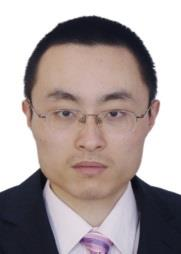
Yudong Zhang
Chair Professor at the School of Computing and Mathematical Sciences, University of Leicester, UK.
Prof. Yudong Zhang received his BE in Information Sciences in 2004 and MPhil in Communication and Information Engineering in 2007 from Nanjing University of Aeronautics and Astronautics. He received a Ph.D. in Signal and Information Processing from Southeast University in 2010. He worked as a postdoc from 2010 to 2012 with Columbia University, USA, and as an Assistant Research Scientist from 2012 to 2013 with the Research Foundation of Mental Hygiene (RFMH), USA. He served as a Full Professor from 2013 to 2017 at Nanjing Normal University. Now he serves as a Chair Professor at the School of Computing and Mathematical Sciences, University of Leicester, UK. He is also (Honorary) Professor of universities in China, India, and Saudi Arabia. His research interests include deep learning and medical image analysis.
Editorial Board Members

Renato Galzio
Neurosurgery, Maria Cecilia Hospital (Cotignola-Ravenna), Italy
Professor Renato Galzio, MD, FAANS, actually holds the position of consultant Neurosurgeon in Maria Cecilia Hospital (Cotignola-Ravenna, Italy). Specialist in Vascular Surgery and Neurosurgery, he has previously been full professor of Neurosurgery, Chairman and Head of the Neurosurgical Department in the University of L’Aquila (2002-2017) and in the University of Pavia (2017-2019). More than eight thousand surgical procedures performed by Dr. Galzio in quality of first operator (8507 till August 31st, 2020, accounting with about 1100 procedures for cerebral aneurysms, 200 for arterio-venous malformations, 3500 for intracranial tumors, 700 transsphenoidal approaches); more than 7500 procedures performed in quality of second operator to train younger surgeons.
Member of the most important national and international Neurosurgical Scientific Societies and associate editor/reviewer/ referee of for most renowned international journals. More than170 papers published in international quoted journals. Three books as Editor, 11 book chapters. He introduced in Italy cadaveric "hands-on" dissection courses and organized, under the auspices of the Italian Society of Neurosurgery, 19 editions of the “Italian Course of Applied Microneurosurgery” and 7 editions of hands-on courses on “Instrumented Surgery of the Cervical Spine”.
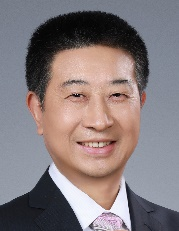
Guogang Xing
Dr. Xing’s research interests mainly focus on the mechanisms underlying chronic pain as well as pain modulation, pain memory and pain-related negative emotion. He devoted his research to elucidate the initiation, development and maintenance of chronic pain, to investigate the roles of receptors and ion channels, key molecules and signaling pathways in the pathogenesis of chronic pain, and the neurocircuitry mechanisms of chronic pain, such as the encoding of nociceptive signaling in the brain, the neural circuit of pain and its role in acupuncture-mediated analgesia. Also, he engaged his research to illuminate the mechanisms underlying the comorbidity of chronic pain with mood disorders including anxiety and depression. Multi-disciplinary approaches and techniques are utilized in Dr. Xing’s lab, which include molecular biology, cell biology, morphology, behavioral pharmacology, iPSC, genome editing, as well as imaging, epigenetics, optogenetics, chemogenetics, and electrophysiology such as in vivo extracellular recording, patch-clamp recording, and in vivo multichannel recording in awake, free-moving animals.
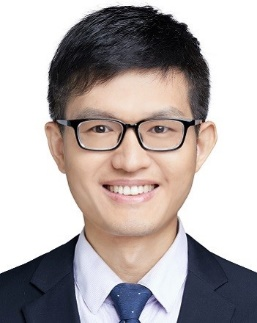
Chenwei Deng
School of Information and Electronics, Beijing Institute of Technology, China
Chenwei Deng received the Ph.D. degree in signal and information processing from the Beijing Institute of Technology, Beijing, China, in 2009. He was a Post-Doctoral Research Fellow with the School of Computer Engineering, Nanyang Technological University, Singapore. Since 2012, he has been an Associate Professor and then a Full Professor with the School of Information and Electronics, Beijing Institute of Technology. He has authored or coauthored over 100 technical papers in refereed international journals and conferences. He has co-edited two books. His research interests include artificial intelligence, visual perception and cognition, brain-inspired computing, pattern recognition, ect.
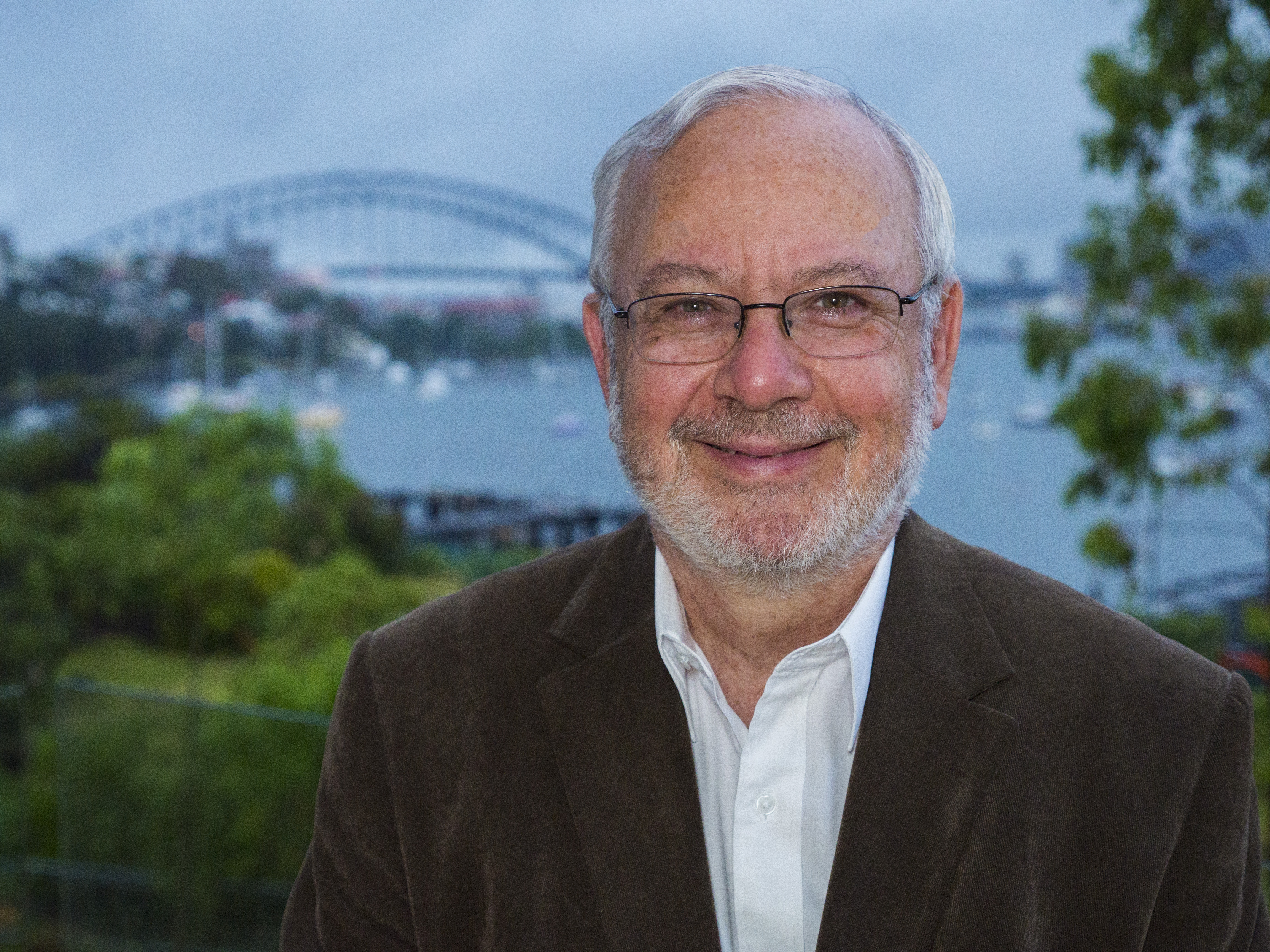
Roy Gary Beran
The Department of Neurology, Liverpool Hospital, Australia
Roy G. Beran is a neurologist and sleep physician. Qualifications include: MBBS, MD, FRACP, FRACGP, Grad. Dip. Tertiary Ed., Grad. Dip. Further Ed., FAFPHM, FACLM, FRCP, FAAN, FANZA, FACBS, B Leg. S, MHL FRSM, FSASS and FFFLM (Hon). Registration with the Australian Health Practitioner Regulation Agency (AHPRA) includes: Neurology; Public Health; and Sleep Medicine. He was a Designated Medical Examiner for the Civil Aviation Safety Authority, a medical assessor for Dispute Resolution for the State Insurance Regulatory Authority and an assessor for the Workers Compensation Commission of New South Wales. He is a Conjoint Professor of Medicine (University of NSW); Professor, the School of Medicine (Griffith University); Conjoint Professor of Medicine, (Western Sydney University); and Professor, Chair, Sechenov Moscow 1st State University, Moscow. Following Russia’s invasion of Ukraine, he refused to re-sign with Sechenov University. He was the inaugural Visiting Professor at the International Research Institute of Health Law Sciences (Southern Medical University), Guangzhou, China and is invited to teach in the Centre for Public Health Governance Studies, East University of Political Science and Law in Shanghai.
He is: a founding Fellow of the Australasian College of Legal Medicine (ACLM); was Past President, still on Council and awarded Honorary Life Fellowship. In 2019, he became ‘Co-Head of Faculty’ for ACLM training courses throughout Australia. He is the Australian Governor and was elected President of the World Association for Medical Law (WAML), in 2022, having previously been Secretary General, Executive Vice President and Regional Vice President. He served on Organising Committees of World Congresses for Medical Law (WCML) and was Programme Chair in 2004 and 2022, (in Australia). He was the first Honorary Fellow of the Faculty of Forensic & Legal Medicine of the Royal College of Physicians (London). He helped create Bond University’s micro-credential in negligence, together with the ACLM. In 2023, he was awarded Fellowship of the Royal Society of NSW. Orcid ID: 0000-0002-5884-0606.
In Neurology, he is: a Fellow of the Royal Australasian College of Physicians; a Fellow of the Royal College of Physicians, Edinburgh; Corresponding Fellow of the American Academy of Neurologists; and a Fellow of the Australian and New Zealand Association of Neurologists. He is a Member of the Australasian Sleep Association and served on various committees thereof. He is a founding member of the Australian Magnetic Resonance Imaging Association (AMRIA) and its first Vice President. He is a visiting medical office at Liverpool Hospital, Royal Ryde Rehabilitation Hospital and St Lukes Hospital Sleep Centre, in Sydney, Australia.
He pioneered the conduct of clinical trials and research in private practice, was principal author in publications, including leading academic/tertiary referral institutions. He has published: > 400 papers, book chapters and letters to the editor; presented ~440 papers at national and international meetings; written or edited 17 books; serves on many editorial boards; being the editor in chief of the international journal, Medicine and Law, the official journal of the WAML.
His research interests include: Concussion; Epilepsy; Legal Medicine; Stroke; Sleep; Neuroepidemiology; Neurological Imaging; and Medical Education.
He was an officer in the Royal Australian Navy Reserve (holding the rank of Commander) and was awarded membership of the general division of the Order of Australia, in 2015.

Jiaxu Chen
School of Traditional Chinese Medicine, Jinan University, China
Jiaxu Chen, Doctor of Medicine, Professor, Chief Physician, Doctoral Supervisor, and Director of Guangzhou Key Laboratory of TCM Prescription and Syndrome. He graduated from Beijing University of Traditional Chinese Medicine in 1997 with a PhD degree. He is a recipient of the National Outstanding Youth Fund, a specially appointed professor under the Yangtze River Scholar Award Program of the Ministry of Education, and enjoy special government subsidies from the State Council. He is a national level candidate for the "Ten Million Talents Project". He formerly served as the Dean of the School of Traditional Chinese Medicine at Jinan University. He has been engaged in teaching, research, and clinical work of traditional Chinese medicine diagnostics for a long time. The research direction is the standardization of traditional Chinese medicine diagnosis and the biological basis of syndromes.
Reza Lashgari
Institute of Medical Science and Technology, Shahid Beheshti University, Iran
Dr. Reza Lashgari is an Assistant Professor and principal investigator at the Shahid Beheshti university, the Institute for Research in Fundamental Sciences (IPM), lecturer at Sharif University of Technology and an alumnus of Columbia University and SUNY. He is the author of numerous scientific articles in top international peer-reviewed journals (e.g., Nature Neuroscience, Neuron, Proceeding of National Academy of Sciences, Journal of Neuroscience, Cerebral cortex, Neural Networks), research collaborating with Columbia University, Utha University, and State University of New York, serving as an associate editor for several sections of Frontiers including Frontiers in Neuroscience, Frontiers in Neurorobaric, Frontiers in Computational Neuroscience, and Frontiers in Physiology, a reviewer for several international journals (e.g., Journal of Neuroscience, Neuroscience, Neurobiology of learning and memory, euroscience Letters), a recipient of numerous fellowships and awards, and the member of The Society for Neuroscience, Japanese Neuroscience Society, and IBRO organization.

Esmaeil Mehraeen
Department of Health Information Technology, Khalkhal University of Medical Sciences, Iran
Dr. Esmaeil Mehraeen, Assistant Professor with +8 years of experience working as a college teacher and researcher. In 2013, he got the first place in the entrance exam for PhD in health information management. He graduated from the first-ranking university in Iran (Tehran University of Medical Sciences) in 2018 with a PhD degree in health information management field. He specializes in health information technology and the faculty member in Khalkhal University of Medical Sciences. He is a powerful force in the workplace and use his positive attitude and tireless energy to encourage others to work hard and succeed.
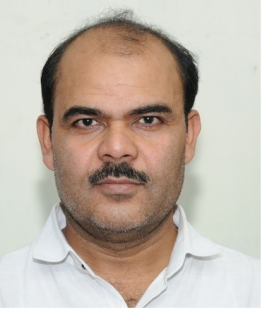
Ranjit Kumar Upadhyay
Department of Mathematics & Computing, Indian Institute of Technology (Indian School of Mines) Dhanbad Dhanbad-826 004 Jharkhand, INDIA.
Prof. Upadhyay has had an excellent academic career. He is an outstanding researcher, innovative teacher and has contributed widely in the subject of Applied Mathematics in general, and in particular Modeling of real world problems in Epidemic, Ecology and Infectious Diseases, Virus dynamics and Neural modeling. His research interests are interdisciplinary in nature like Chaotic dynamics of real world situations in areas such as Population dynamics, Reaction-diffusion modeling, Environmental modeling and Dynamical systems theory. He has written two text Books titled “Introduction to Mathematical Modeling and Chaotic Dynamics” & Spatial Dynamics and pattern formation in Biological populations published by CRC Press (USA). He has published 210 research papers (mostly SCI) in different International Journals of high repute (mostly after joining IIT(ISM), Dhanbad), and 3 in National journals, 15 in International Conference proceedings. Book chapters. His research work has been highly appreciated and his papers have been cited extensively in various International Journals and books.

Alan Wang
Auckland Bioengineering Institute, The University of Auckland, New Zealand
Alan Wang is a principal investigator and Associate Professor at The University of Auckland. He has more than ten years of research experience in bioengineering informatics and integrated medicine, especially in advancing the role of medical informatics in health care. His research interests include bioengineering, data informatics, neurocomputing, and biomedical statistics and simulation. He has developed medical data analytics methods for mobile health and personalized diagnosis and prognosis based on intelligent computing theories. He has experience analyzing huge cohorts of patient data with applications of early diagnosis, disease understanding, and effective treatment of patients with different disorders. He serves as an Editorial Board Member and an Active Reviewer for several international journals.
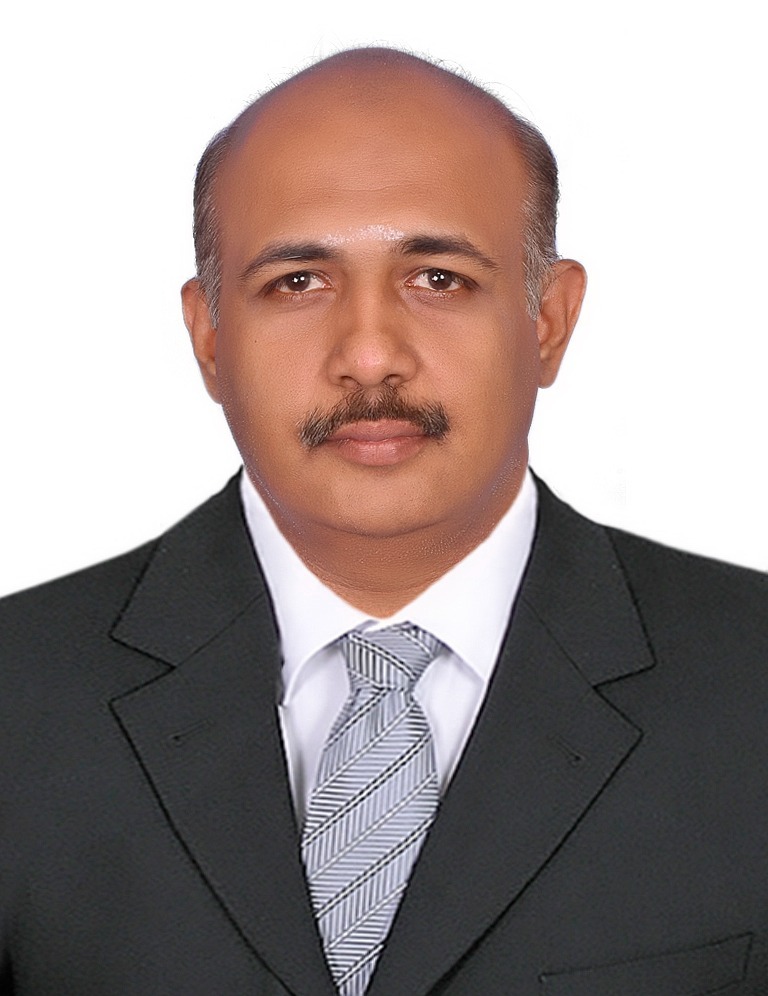
M. Pallikonda Rajasekaran
Kalasalingam Academy of Research and Education, Anand Nagar, Krishnankoil, Virudhunagar District, Tamil Nadu and India
M.Pallikonda Rajasekaran, born in Srivilliputhur, Virudhunagar District of Tamil Nadu in 1980, he had his schooling in the same town and graduated in Electronics and Instrumentation Engineering in 2001 from Shanmugha College of Engineering, Thanjavur and completed his M.Tech. degree in 2002 with second Rank in SASTRA University. He pursued his doctoral programme in Anna University, Chennai. Starting as a Lecturer in 2003, he became Asst. Professor in 2008, Associate Professor in 2009 and Professor in 2012 in Kalasalingam Academy of Research and Education. He had a deep involvement in Bio-signal Processing research. His work majorly focuses on the Image Segmentation for identification of brain tumor and image reconstruction and compression using medical images for diagnosis. Over 150 B.Tech. students, 75 M.Tech. students, and 10 Doctorates stand testimony for his productivity in Image Processing, Wireless Sensor Networks, and Biomedical Instrumentation research. He has so far published more than 188 papers in national and international journals and conferences. He is a Fellow of Indian Society For Technical Education (ISTE), Institute of Electrical and Electronics Engineers (IEEE), Asia-Pacific Chemical, Biological & Environmental Engineering Society (APCBEES), Institution of Engineers (India)(IE), International Association of Engineers (IAENG) and International Association of Computer Science and Information Technology (IACSIT).
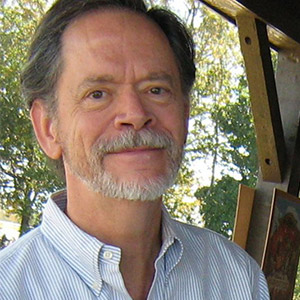
Grant Bright
Department of Patient Training, Brain Science Center, Gainesville, Georgia, United States
Grant Bright is a Ph.D., licensed as a professional counselor specializing in Neurotherapy and qEEG. He maintains a private practice in Gainesville, Georgia.
With over 25 years’ experience in qEEG and neurofeedback, he is highly regarded in the field. He is a graduate of Emory University and other universities. He has been in private practice for 25 years working with a broad spectrum of clients. Among his areas of expertise are anxiety, concentration, depression, sleep, and head injury.
In addition to being a prominent researcher, he has presented at National conferences and to general audiences speaking on several topics in brain research and brain training (Neurofeedback).
Dr. Bright is an interactive, solution-focused therapist. His therapeutic approach is to provide support and practical feedback to help clients effectively address personal life challenges. He integrates complementary methodologies and the latest scientific techniques to offer a highly personalized approach tailored to each client. With compassion and understanding, he works with each individual to help them build on their strengths and attain the personal growth they are committed to accomplishing.
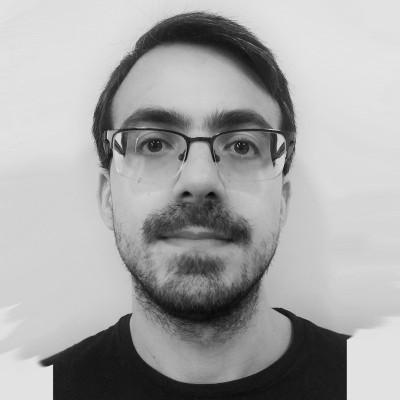
Juan Pedro Dominguez-Morales
Juan P. Dominguez-Morales received the B.S. degree in computer engineering, the M.S. degree in computer engineering and networks, and the Ph.D. degree in computer engineering from the University of Seville, in 2014, 2015 and 2018, respectively. Since February 2023, he has been working as Associate Professor in the same university. His research interests include neuromorphic engineering, computational pathology and deep learning.

